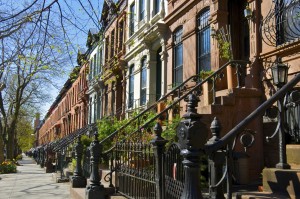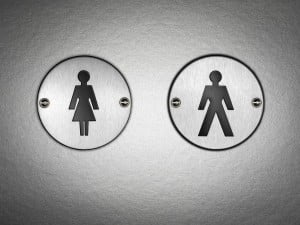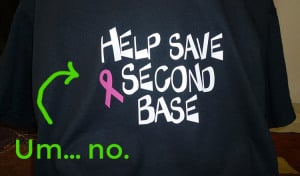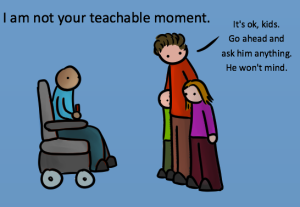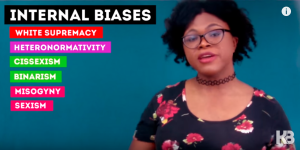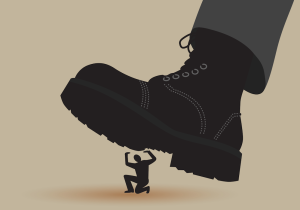Home ownership is one of those things that increasingly seems very out-of-reach for young people. Four years after graduating from college, hardly anyone I went to school with has a steady career job let alone a home of their own.
But in the last few years, I’ve grown increasingly antsy watching HGTV at home and throwing thousands of dollars away renting basement apartments for astronomical prices in DC. Seemingly every night, I turned on a show about people buying a house and felt pangs of longing, wishing it was something I could do.
Growing up as a military dependent, I spent my entire childhood moving around constantly, without any real place to call home.
So when my boyfriend told me a few months ago that he had run the numbers and he thought we could make it work, I was all-in.
DC has one of those amazing programs designed to help first-time home buyers who might not have the ability to compile a large down payment cover those costs. It turned out that we qualified for the program, and if we played our cards right, we could afford to purchase a small condo or apartment in a less metro-accessible section of the city for about the same price as what we were currently paying for our apartment.
A few weeks later, we were approved for the lending program and skimming local real estate in hopes of finding our dream home. But the prices of houses in the city made one thing quite clear: Owning real estate in DC isn’t an option available to everybody, and finding somewhere we could afford would mean moving to a neighborhood outside of the more “hip” and young neighborhoods we had become most familiar with in our years here.
So we began looking at alternative neighborhoods.
But as two social-justice minded individuals, one of whom works in affordable housing, this presented a double-edged sword. We were excited to find a place of our own, but the only neighborhoods we could afford to live in are on the edge of gentrification and primarily home to the elderly and people of color. If we were to move in, we’d be displacing somebody else.
So what could we do? Before we begin, let me be the first to tell you that if my home-buying journey has taught me anything, it is that there is no easy answer to this question. Urban areas in particular are a hotbed of structural inequality, and there isn’t an easy way to relate to that as a privileged white person.
But there are some places you can start:
1. Acknowledge Your Class And/Or White Privilege – And Use It
Driving around the neighborhood, checking out the local schools, touring homes, getting a home inspection, trying out all the local places you can order mac and cheese (or maybe that one is just me): These are all the things you think about doing when you go to buy a house.
But checking your privilege probably didn’t even rate on the list for most, and it didn’t land on mine either.
However, touring homes in neighborhoods where it was clear I would be one of the only white people on the block made me confront some truths about who I am and the damage I could be doing by moving in.
Nonetheless, you need to embrace the bottom line when it comes to home buying: You are a gentrifier. You are displacing somebody by moving into this community.
Realizing this meant a couple of things: confronting my own privilege, acknowledging it, and asking myself some questions.
Who am I to move in to this neighborhood? Will my presence here harm this community? How can I work to negate the problems gentrification is creating here?
Writing for The Atlantic’s City Lab, Daniel Hertz explained that each of us has to come to terms with their privilege when it comes to gentrification because:
…there’s no way out if you happen to have above-average economic power or the kind of cultural capital that attracts people with above-average economic power. Whether or not you say ‘hi’ to your neighbors, your presence in a relatively low-income or blue-collar community will, in fact, make it easier for other college graduates to move in; to open businesses that cater to you; to induce landlords to renovate or redevelop their properties to attract other new, wealthier residents who want access to those businesses.”
That means it is important to consider how privileged you are to be able to buy a home in the first place. In many of these areas, all homes are owned by landlords and structural inequality has ensured that most don’t have the funds to come up with a down payment and are forced to rent.
And in just as many areas, if you’re a white person moving in you will be displacing somebody who is likely low-income and/or elderly, and taking away an opportunity for somebody native to that neighborhood to purchase a home there.
But even once you have acknowledged your privilege, you probably still have questions about what else you can do. After all, given the intersections of our identities, many of us are still facing these questions while facing other forms of oppression that have also kept many from buying a home in the past — like class, gender, or ability.
So what is a privileged person looking for a home to do? Does knowing you’re a gentrifier mean giving up on that dream?
As Hertz went on to explain, gentrification is only part of the picture — the other half is a society where the economy, housing policies, and basically everything else favor some folks over others. He explained that although it’s easy to justify moving into these neighborhoods by telling yourself you’re a good person, that isn’t enough.
“Being considerate to your neighbors might make you a good person, but I’d like to suggest that you have another kind of responsibility: to be aware of these underlying systemic processes and use what social and political power you have to change them,” wrote Hertz.
What that means is that we can’t hope to take on and combat gentrification without recognizing and breaking down the systems that perpetuate it in the first place.
And those are big-picture problems. I’m talking not only about America’s history of racist and classist housing discrimination policies but also racism and classism themselves.
Which leads us to…
2. Be a Fierce Advocate for Affordable Housing
If you find yourself lucky enough to be a homeowner, help others get there too. It shouldn’t be a privilege to have a home. Having a safe place to live should be a human right.
The bottom line is that home ownership isn’t something available to everybody in the United States, and the statistics reflect that. According to the Census Bureau, homeownership for Black and Hispanic folks is significantly lower than their white counterparts — and those numbers have only gotten worse in the years since the recession hit.
And it isn’t just home ownership at stake — many don’t have a place to live at all.
In 2014, 578,424 people in the US were homeless, of which 216,197 were people in families. In my home city, Washington, DC, homelessness is particularly bad. On any given night, 7,784 people are without homes.
And part of the reason for that is shrinking access to affordable housing. In DC alone, we’ve lost 50% of our affordable housing since 2002 while rent has increased annually by $3,000.
Everybody deserves a safe and healthy home to thrive in, and there are things we can all do to ensure that having a home isn’t so out-of-reach for those whom society has traditionally held back from that.
So stand up and use your privilege to make that a reality. Vote for fair and affordable housing policies in your communities and for lawmakers that support them, and get involved in organizations that help put these policies into action.
Some great organizations to get involved with and learn more include the National Low Income Housing Coalition and the Local Initiatives Support Corporation (LISC), but don’t forget to check out what organizations are striving to provide affordable housing and alleviate homelessness in your own communities.
3. Become a Part of Your Community
Being a fierce advocate for your community also means being a real part of that community.
It’s easy to fall into the trap of justifying doing nothing in the place you live by telling yourself that you donate to a given organization or volunteer at the homeless shelter. But that isn’t enough.
Or perhaps you are an active member of your community — but only part of it. You see, many of our communities are still segregated along race and economic lines.
In an op-ed for Next City, Derek Hyra discussed the phenomenon plaguing many of our neighborhoods. “In diversity segregation, racially and economically disparate people live next to each other, but not alongside each other,” explained Hyra.
“So-called ‘diverse’ communities often remain internally segregated because meaningful interactions across income and class have failed to materialize. As long as such divides exist, the benefits of mixed-income communities won’t be equitably felt.”
This leads many well-meaning (and often more wealthy) newcomers who are looking to get involved to push out lower-income original residents from civic associations, volunteer positions, and advocacy opportunities and steer community resources away from the original residents. These residents start to be excluded from their own community and pushed out culturally as well as monetarily.
To combat this, we have to truly become a part of our communities and embrace all of the residents — not just the ones who look like us. Use your voice to lift up original residents of the community, not to talk over them, and listen to what your community wants — not to what you think your community might need.
***
There is a lot to consider when you’re buying a home, especially if you’re buying one for the first time.
But as a feminist, high-up on that list should be how your entrance into a community could impact it.
You might not be able to help stop gentrification, but there are things you can do to address the structural inequalities behind and it be a real advocate for your community.
If you’re lucky enough to have a community welcome you, don’t forget to make your voice there count.
[do_widget id=’text-101′]
Ally Boguhn is a Contributing Writer for Everyday Feminism and a feminist activist and media researcher living and working in Washington, DC. She completed both her B.A. in Communications and Art History as well as her M.S. in Professional Communications at Clark University, where she researched abortion debate rhetoric. Ally is also the founder and editor of Because I am a Woman, a blog devoted to intersectional feminism and reproductive justice. You can follow Ally on Twitter @AllyBoguhn. Read her articles.
Search our 3000+ articles!
Read our articles about:
Our online racial justice training
Used by hundreds of universities, non-profits, and businesses.
Click to learn more


